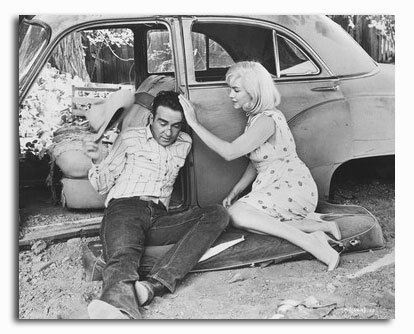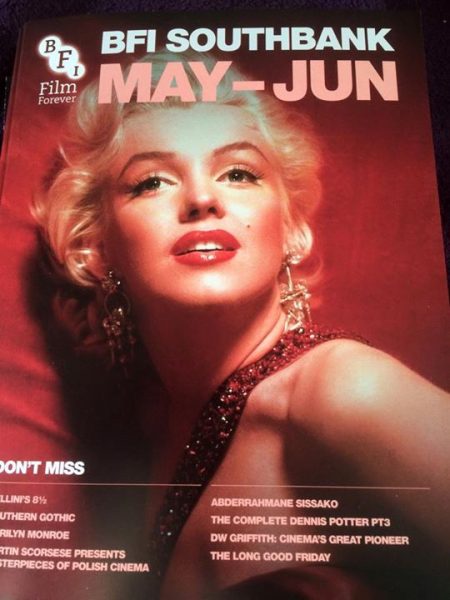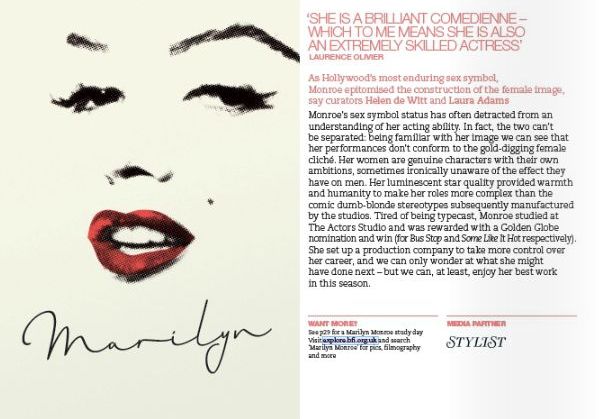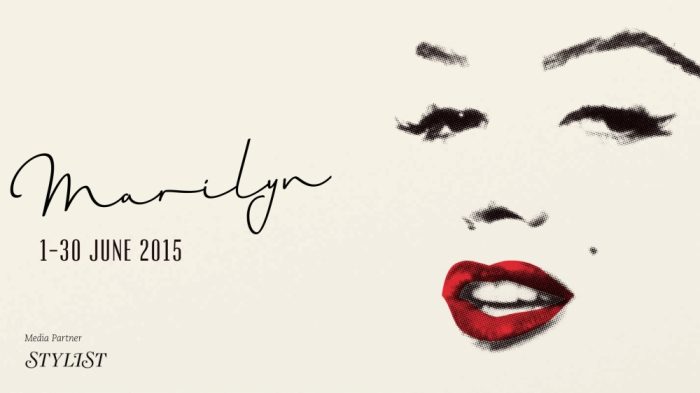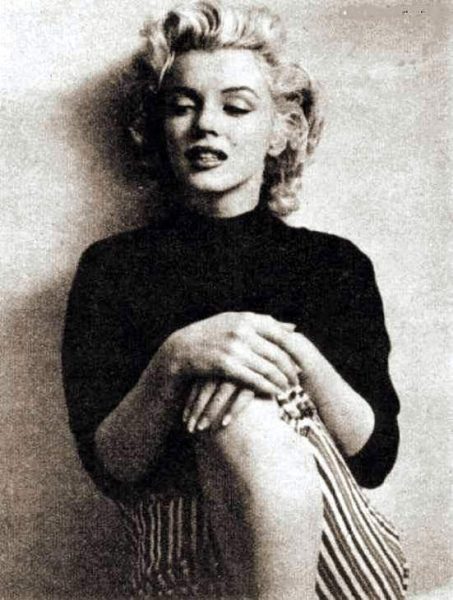
‘Who Do You Think You Are, Marilyn Monroe?’ was the title of a panel discussion held at the BFI in June as part of their MM retrospective. Film programmer Jemma Desai chaired a wide-ranging debate that encompassed acting methods, body image and feminism. Film scholar Lucy Bolton, writer Jacqueline Rose (Women in Dark Times) and playwright/novelist/critic Bonnie Greer (Marilyn and Ella) share their perspectives on why Monroe’s life and work continue to fascinate – with Greer even suggesting that “Marilyn was a hundred times more radical than Arthur Miller could even begin to dream of being.” You can watch the discussion in full here.
